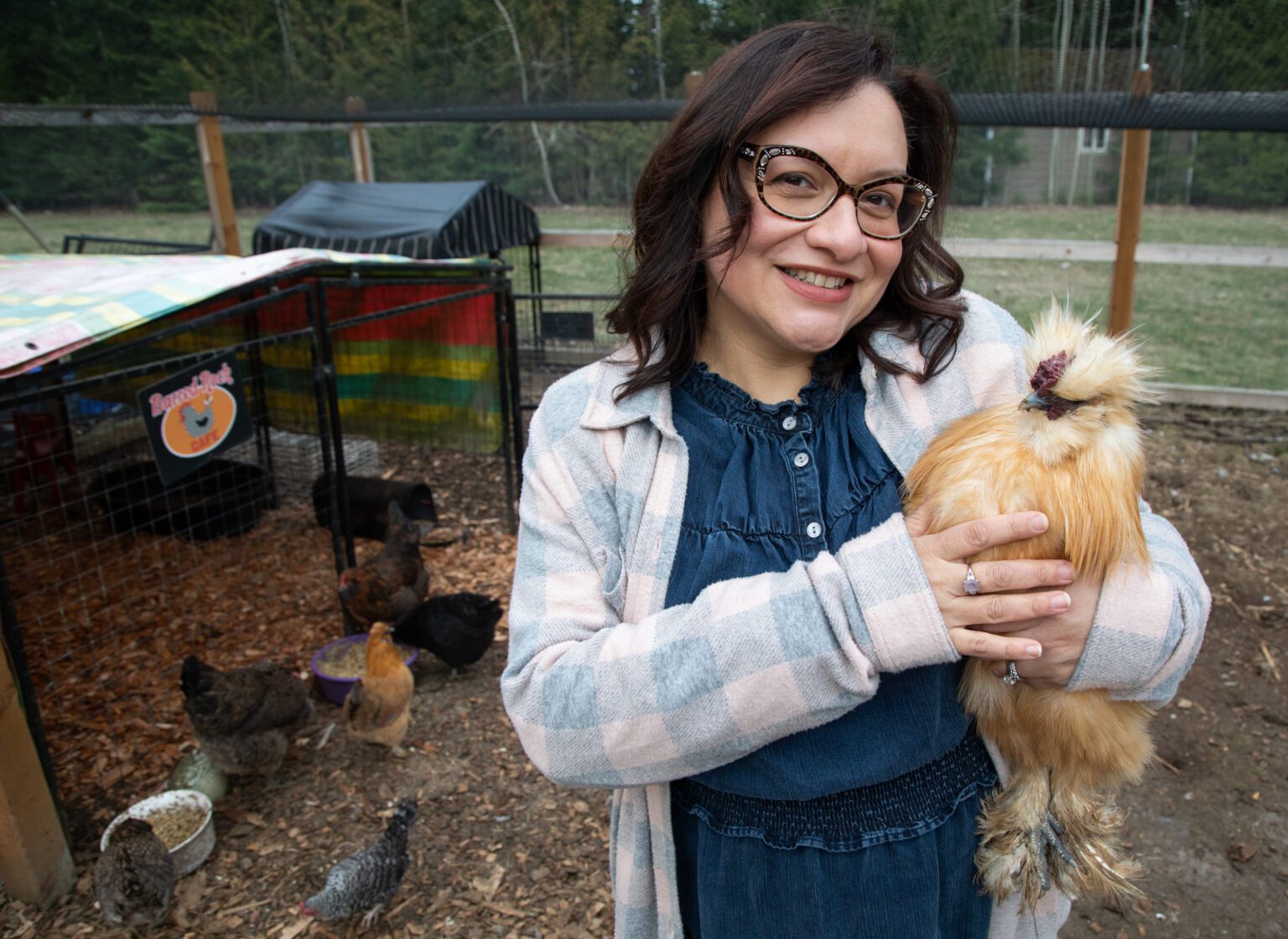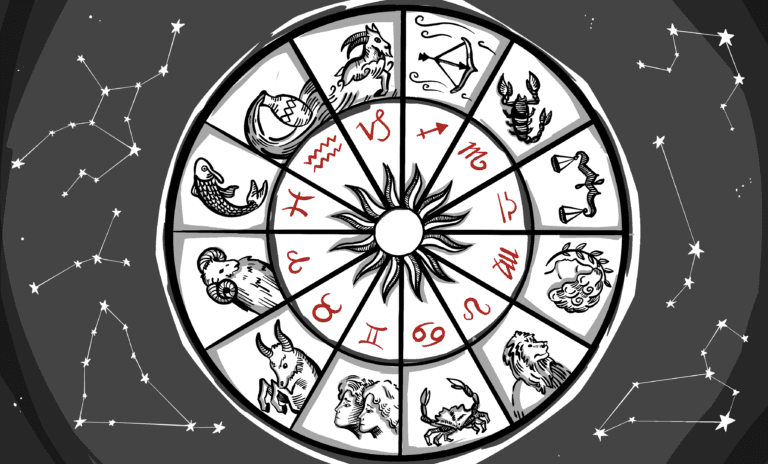A rustic wood sign with the head of a chicken carved on the left side and a duck on the right welcomes visitors to Chickenlandia.
On a late winter morning, Dalia Monterroso, the self-proclaimed president of Chickenlandia, opened the gate to her fowl-focused domain, which is located behind her family’s house on a wood-lined road at the edge of Bellingham city limits.
In the large, enclosed run, more than 30 chickens of varying sizes, breeds and personalities make their home, along with a handful of ducks — including a white one named Walter who, despite what her moniker might suggest, lays a giant egg pretty much every day.

Amid the barnyard sounds of crowing, clucking and quacking, Monterroso, 48, talked about what led her to become a chicken educator, YouTube sensation and now author of a new book, “Let’s All Keep Chickens: The Down-to-Earth Guide to Natural Practices for Healthier Birds and a Happier World.”
Monterroso said her journey from hobby chicken farmer to poultry pro started after she gave birth to her first son. She had postpartum depression and wanted to find something to do that belonged just to her. The 10 baby chicks she acquired to help get her out of her funk ended up changing her life.
“I got the chickens and I just got obsessed,” Monterroso said. “Like, immediately obsessed. It was completely unexpected. I started posting about them on Facebook; I guess my feelings about them were pretty evident. People started asking me to help them with their chickens, and I’d give them advice.”

Eventually, Whatcom Community College contacted Monterroso to ask if she’d teach a class, and she signed on. An ambassadorship with Scratch & Peck Feeds, more classes, seminars and a TEDx talk followed. It was then Monterroso decided to “lean in” and start a YouTube channel, “Welcome to Chickenlandia.”
In her videos, Monterroso congenially offers advice on everything from supplies you’ll need before bringing home baby chicks, to chicken coop hacks, how to deal with sick chickens, urban chicken-keeping, deciding on the number of feathery friends to raise, how to solve the national egg crisis, practical tips to avoid bird flu and how chicken-keeping is for everyone.
The last point is an important one for Monterroso. Although she acknowledges her setup was expensive to put together and pricey to maintain, she said it doesn’t have to be that way. It’s possible to have three or four chickens and a small coop and still benefit from the relationship between humans and poultry — one she said has been going on for millennia.

“This is the most natural thing we can do; it’s part of our humanity,” Monterroso said. “It used to be this completely symbiotic relationship, and we’ve kind of lost that. I want to return us to that place, because I think that will make chicken-keeping more available to people of all income levels. Right now, the way that it’s taught, you have to have money.”
As a child of parents who immigrated from Guatemala to the U.S., Monterroso said she grew up in a poor neighborhood that was adjacent to a wealthy one. There was a crowing rooster in her neighborhood, but nobody reported it; she opined that if it had been in the other neighborhood, it would have been. Somewhere along the line, she said, the sound of roosters crowing became a nuisance rather than a fact of life, and something people in wealthier neighborhoods aren’t always willing to put up with.
Part of the crusade she’s on to get chickens everywhere focuses on changing bylaws to make it legal to have them in more places. Whether it’s a single-family home, an apartment complex or government housing, people should be able to keep chickens, she said, adding she believes factory farming is partially to blame for the dearth of backyard coops.

With baby chicks popping up at farm stores around Whatcom and Skagit counties and with spring just around the corner, now is a good time to crack the code on what it takes to be a successful chicken-tender and future egg collector.
Watching Monterroso interact with her flock, it’s easy to see she connects with the birds on a number of levels. Every chicken or duck has a name — including, but not limited to, Pac Man, Bubbalicious, Zorro, Jessica, Philippe and Mr. Robot, a duck who hates water. The ones who were rescued or have health issues she tends to with care, and all animals are treated equally.

As part of the career she hatched, Monterroso keeps busy by running Chickenlandia; teaching classes like “Pet Chickens 101,” which is offered at 6 p.m. Wednesday, March 29 at the Whatcom Humane Society; planning an upcoming book tour; and tending to other presidential duties.
But she wouldn’t have it any other way, because most of what she loves about her job can be found in the predator-proof run and coop where her feathered companions do as much for her as she does for them.

“When I come out here and have this connection, it’s a forced connection with nature every day,” Monterroso said. “I have chronic pain. Sometimes I will wake up and my whole body hurts, but after a few minutes out here it always lifts. Always. Now, it’ll come back as soon as I go back inside, but there’s something special about being out here with them, and I had no idea it would be like that. It’s so peaceful being out here, listening to them clucking and watching them peck and scratch.”
To find out more about Chickenlandia, sign up for an online Backyard Chickens 101 course, or to purchase “Let’s All Keep Chickens,” go to welcometochickenlandia.com. Videos can be found at youtube.com/@WelcometoChickenlandia. To sign up for the free March 29 class at Whatcom Humane Society, go to whatcomhumane.org/events.




